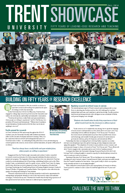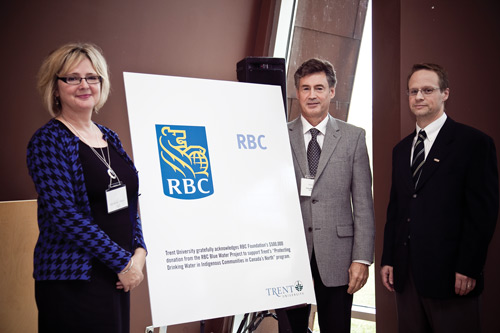
 |
 Investing in TrentBuilding Indigenous Partnerships to Protect Clean Water in Canada’s North
For the past five years, Trent University researchers have been working on an innovative project designed to empower northern Indigenous communities to preserve their own access to clean, safe drinking water. In 2009, the RBC Blue Water Project awarded $500,000 in funding to experts at Trent’s Institute for Supporting Indigenous Knowledge The program aimed to enhance capacity within northern Indigenous communities to ensure that their natural sources of water are protected from threats that could degrade the quality and quantity of drinking water. Working in collaboration with Indigenous organizations, non-governmental organizations and other educational institutions, Trent experts assisted in offering capacity building activities to local communities, aiming to increase awareness and enhance technical and lay expertise for multi-barrier approaches to the protection of drinking water. “The unique aspect that Trent and our partners and collaborators bring to this project is the ability to ensure that our work will both respect Indigenous knowledge and be enhanced by it,” said Dr. Chris Metcalfe, director of Trent’s Institute for Watershed Science. “The generous support of the RBC Foundation assisted in strengthening the capacity of northern Indigenous communities to protect sources of drinking water and to manage watersheds.” The experience gained and materials developed will serve as a template for similar capacity enhancement projects within other Indigenous communities in Canada and potentially internationally. |

































